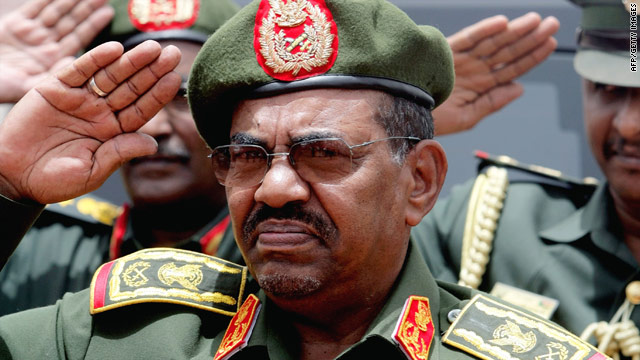 (CNN) -- Sudan's President Omar al-Bashir won the country's controversial but historic presidential election with roughly two-thirds of the vote, the National Election Commission said Monday.
(CNN) -- Sudan's President Omar al-Bashir won the country's controversial but historic presidential election with roughly two-thirds of the vote, the National Election Commission said Monday.
The elections were the first in 24 years in the oil-rich African nation, which has been riven by fighting in Darfur and a civil war between north and south.
A top United Nations official in southern Sudan called the voting "a necessary step in moving towards democratic governance in Sudan."
"The fact that it has come this far can seen as a step forward. It is a step forward in the peace agreement" signed in 2005, said David Gressley, UN resident coordinator for southern Sudan.
He confirmed that two supporters of an independent candidate for governor in Unity State were killed in clashes in the state capital Bentiu on Friday. But he said that in general, the post-election period has been relatively quiet.
The United States and other international observers criticized the elections, saying there were irregularities in many parts of the country.
The elections were "an essential step" in the peace process, White House press secretary Robert Gibbs said in a statement last week.
But there were problems with the process, he said, citing "reports of intimidation and threats of violence in South Sudan, [and the] ongoing conflict in Darfur did not permit an environment conducive to acceptable elections."
Al-Bashir won 68.24 percent of the vote in the presidential race, getting just under 7 million votes, the commission said.
Salva Kiir won 92.99 percent of the vote in the race for president of Southern Sudan, a semi-autonomous region that is scheduled to vote next year on whether to become independent.
The results reflect the divisions between north and south that continue to plague the country, a leading independent political analyst said.
"Omar al-Bashir did very well in Northern states and it is not surprising that he did not do well in the South as he is not really well liked by the people in the South," the expert said. The analyst is not authorized to speak on the record and asked not to be named.
There could be isolated incidents of violence in response to the results, but they are what was expected, the observer said.
Al-Bashir, a former military officer who took power in a bloodless coup in 1989, has been indicted over allegations of war crimes by the International Criminal Court.
His implementation of Islamic law created divisions between the north and south.
The voting -- for president, parliament and other local positions -- was scrutinized by about 750 international and 18,000 domestic observers.
The election was a key part of the 2005 Comprehensive Peace Agreement, which helped end decades of civil war between the country's north and south.
The conflict pitted Christian and animist southerners against Muslim northerners, leaving more than 2 million people dead.
The peace deal also called for a referendum next year to determine whether the south should become an independent nation.
"The elections in the south experienced a high incidence of intimidation and the threat or use of force," the Carter Center said after the voting on April 18.
"There were numerous instances of the Sudan People's Liberation Army intimidating voters and being stationed too close to polling stations. State interference in the campaigns of opposition candidates was widespread in the south," said the Atlanta, Georgia-based organization headed by former U.S. President Jimmy Carter.
However, the EU mission said, the elections showed progress on gender equality, "as a minimum of 25 percent of all legislative seats will be occupied by women."



